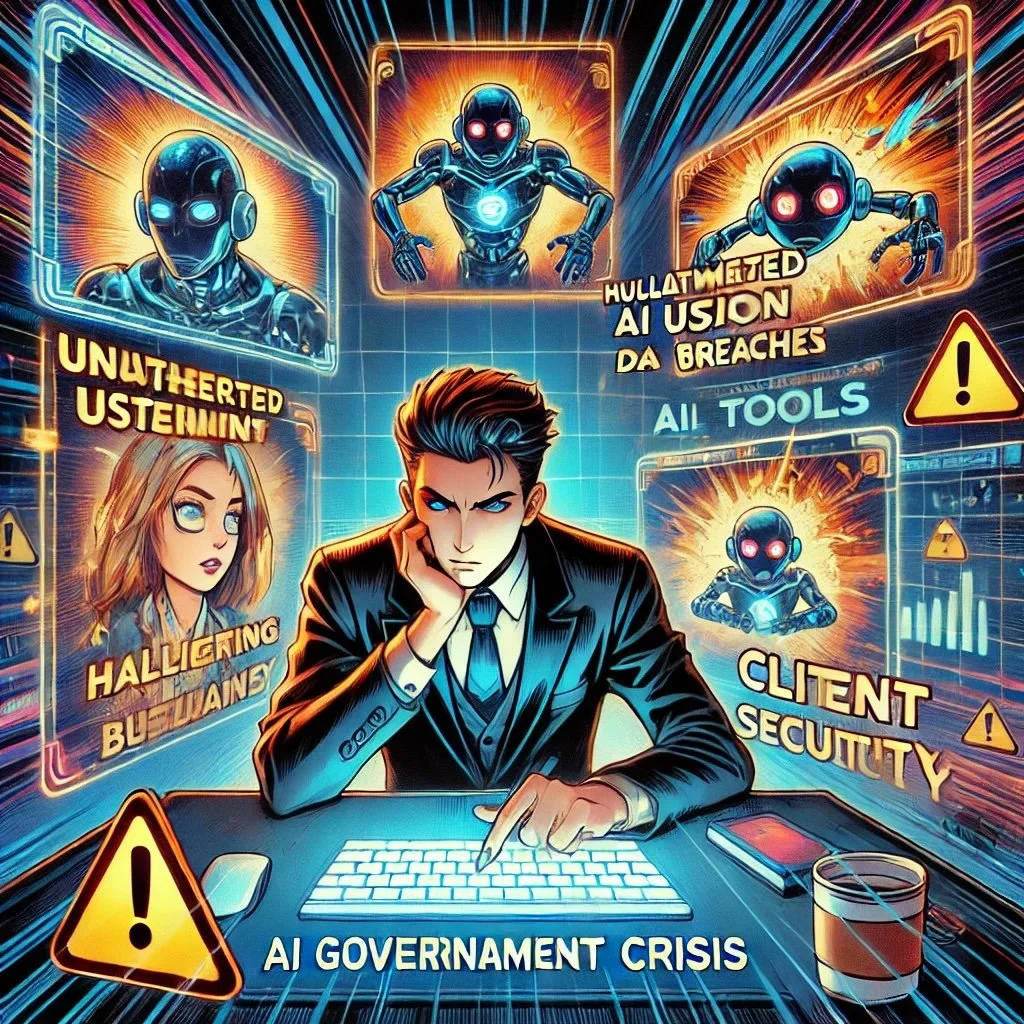🎙️ Ep. 120: AI Game Changers for Law Firms - Stephen Embry on Legal Tech Adoption and Privacy Concerns 🤖⚖️
/My next guest is Stephen Embry. Steve is a legal technology expert, blogger at Tech Law Crossroads, and contributor to Above the Law. A former mass tort defense litigator with 20 years of remote practice experience, Steven specializes in AI implementation for law firms and legal technology adoption challenges. With a master's degree in civil engineering and programming expertise since 1980, he brings a unique technical insight to legal practice. Steven provides data-driven analysis on how AI is revolutionizing law firms while addressing critical privacy and security concerns for legal professionals. 💻
Join Stephen Embry and me as we discuss the following three questions and more! 🎯
What do you think are the top three game-changer announcements from the 2025 ILTA Conference for AI that're gonna make the most impact for solo, small, and mid-size law firms?
What are the top three security and privacy concerns lawyers should address when using AI?
What are your top three hacks when it comes to using AI in legal?
In our conversation, we covered the following and more! 📝
[00:00:00] Episode Introduction & Guest Bio
[00:01:00] Steve's Current Tech Setup
[00:02:00] Apple Devices Discussion - MacBook Air M4, AirPods Pro
[00:06:00] Android Phone & Remote Practice Experience
[00:09:00] iPad Collection & MacBook Air Purchase Story
[00:12:00] Travel Tech & Backup Strategies
[00:15:00] Q1: AI Game Changers from ILTA 2025 Conference
[00:24:00] Billable Hour vs AI Adoption Challenges
[00:26:00] Competition & Client Demands for Technology
[00:35:00] Q2: AI Security & Privacy Concerns for Lawyers
[00:37:00] Discoverability & Privilege Waiver Issues
[00:44:00] Q3: Top AI Hacks for Legal Professionals
[00:46:00] Using AI for Document Construction & Rules Compliance
[00:50:00] Contact Information & Resources
Resources 📚
Connect with Stephen Embry
• Email: sembry@techlawcrossroads.com
• Blog: Tech Law Crossroads - https://techlawcrossroads.com
• Above the Law Contributions: https://abovethelaw.com
• LinkedIn: [Stephen Embry LinkedIn Profile]
Mentioned in the Episode
• ILTA (International Lawyers Technology Association) Conference 2025 - https://www.iltanet.org
• Max Stock Conference - Chicago area legal technology conference
• Consumer Electronics Show (CES) - https://www.ces.tech
• Federal Rules of Civil Procedure - https://www.uscourts.gov/rules-policies/current-rules/federal-rules-civil-procedure
• Apple Event (October 9th) - Apple's product announcement events
• Gaylord Conference Center - Washington, DC area conference venue
Hardware Mentioned in the Conversation 🖥️
• MacBook Air M4 (13-inch) - https://www.apple.com/macbook-air/
• iPad Pro - https://www.apple.com/ipad-pro/
• iPad Air - https://www.apple.com/ipad-air/
• iPad Mini - https://www.apple.com/ipad-mini/
• iPhone 16 - https://www.apple.com/iphone-16/
• Apple Watch Ultra 2 - https://www.apple.com/apple-watch-ultra-2/
• AirPods Pro - https://www.apple.com/airpods-pro/
• Samsung Galaxy (Android phone) - https://www.samsung.com/us/mobile/phones/galaxy/
• Samsung Galaxy Fold 7 - https://www.samsung.com/global/galaxy/galaxy-z-fold7/
Software & Cloud Services Mentioned in the Conversation ☁️
• Apple Intelligence - https://www.apple.com/apple-intelligence/
• ChatGPT - https://chat.openai.com
• Claude (Anthropic) - https://claude.ai
• Brock AI - AI debate and argumentation tool
• Notebook AI - https://notebooklm.google.com
• Microsoft Word - https://www.microsoft.com/en-us/microsoft-365/word
• Dropbox - https://www.dropbox.com
• Backblaze - https://www.backblaze.com
• Synology - https://www.synology.com
• Whisper AI - https://openai.com/research/whisper
Don't forget to give The Tech-Savvy Lawyer.Page Podcast a Five-Star ⭐️ review on Apple Podcasts or wherever you get your podcast feeds! Your support helps us continue bringing you expert insights on legal technology.
Our next episode will be posted in about two weeks. If you have any ideas about a future episode, please contact Michael at michaeldj@techsavvylawyer.page 📧












